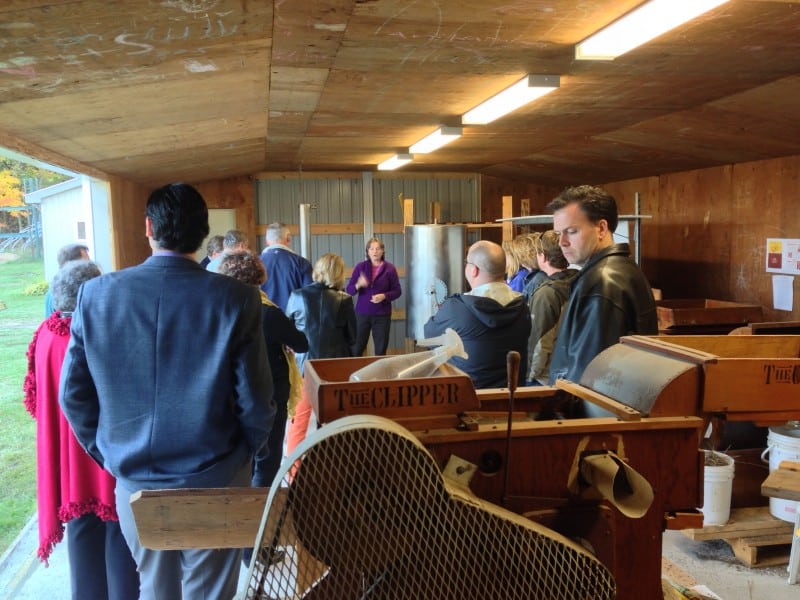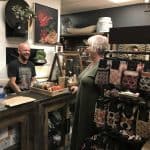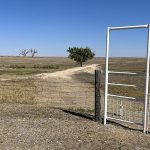
Could a simple backroom tour be better for supporting startups than a full 14 week course? Photo of Bonnieheath Estate Lavender & Winery backroom tour, Ontario, by Becky McCray.
Because I’ve been an entrepreneur since junior high school, I’ve been asked to help with all kinds of entrepreneur support over the decades. I’ve taught entrepreneur classes, I’ve been part of day-long entrepreneur events, I’ve taught workshops and I’ve been a mentor in formal and informal ways. And I’ve been thinking lately about what works and what doesn’t work that well for people in small towns.
Not everyone learns best from the usual kind of formal trainings in a classroom with a lecture from an expert.
And it’s not easy for would-be entrepreneurs to get to the classes because of timing and conflicts and they’re busy.
And the topics we had to cover in the trainings I was involved in, often focused on things that weren’t necessarily helpful for entrepreneurs. Or weren’t what they most needed to know.
In fact, I just got an email from an educational institution that they’re doing a six week entrepreneur training. When I looked at their list of topics, it struck me as exactly what is wrong with our traditional entrepreneur training:
It’s focused on writing out business plans and legal entity formation, and even the outline is full of jargon like “owner’s equity” and “Calculating Revenue to Break-Even.”
I’m convinced that training curriculum is not the right way to get more entrepreneurs actually doing business in a small town.
In small towns, we have a lot of potential entrepreneurs. They just don’t all fit into the “traditional startup business” model that Old Way courses assume. Think about all the people in your town who could be non-traditional entrepreneurs.
- People doing side hustles already
- Students making things in school classes or organizations
- People with talents they aren’t using in their jobs
- People who want to go into business some day
- People who have a business started but need some help
- People who have been in business before but want to try a different business
- People who are thinking of starting a retirement business
Old Way traditional entrepreneur trainings take all these different kinds of people and assume they all need the same 14 lessons. They assume they’ll all get everything written out and perfectly planned, before they go into business. This is that “traditional startup” model that was assumed a long time ago.
In this Old Way model, startups need to have all their ducks in a row in order to go into business. Everyone needs to have great credit, deep pockets, good connections, be clean and sober, have strong business skills, and a solid support network. Think about your town, there aren’t really that many people who have all those qualifications.
There is an Idea Friendly alternative, one that gives you practical steps to get your entrepreneurs to train each other in a way that is self-sustaining:
Learn more in our latest video at SaveYour.Town.
- About the Author
- Latest by this Author
Becky started Small Biz Survival in 2006 to share rural business and community building stories and ideas with other small town business people. She and her husband have a small cattle ranch and are lifelong entrepreneurs. Becky is an international speaker on small business and rural topics.










